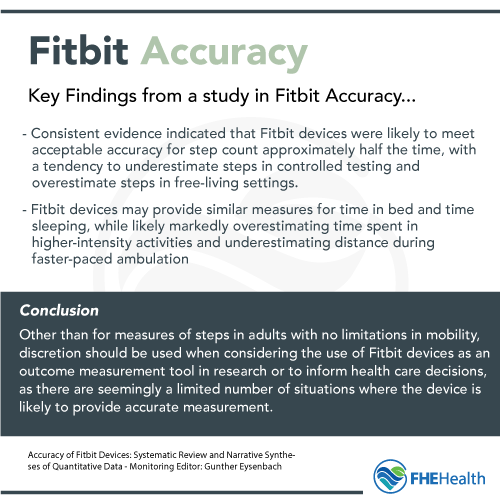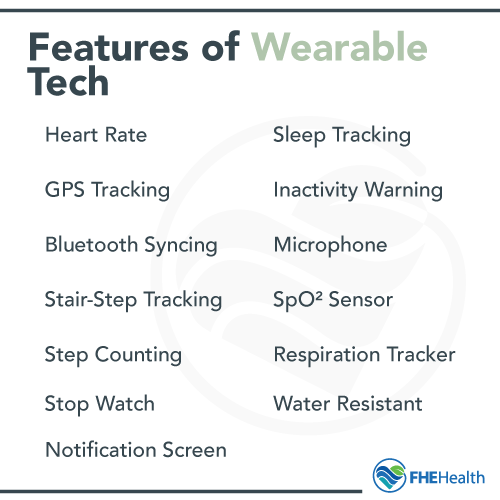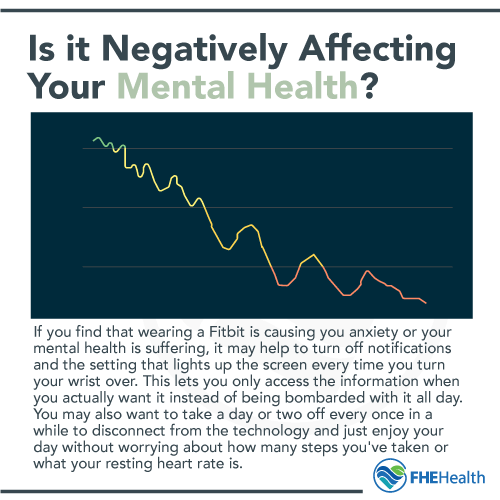
Fitbits are wearable activity monitors that look like a watch but offer a lot more insight when it comes to your daily activity levels and vital signs. Many Apple watches and Garmin brand watches have similar features and are lumped under the moniker of ‘Fitbit’. You’ll find many variations within these products including accuracy, GPS, Bluetooth syncing and of course aesthetics. Basic functionality usually includes a step and stair tracker as well as a monitor for your heart rate. Some advanced models can track your sleep patterns and work with food tracking apps to help you stay the course with your dietary goals.
All of these tools have the best of intentions, to help us achieve our goals through new data. Certainly, most fitness tracker apps take a very positive approach to fitness. They use congratulatory messages and digital fireworks when you hit your goals, and when you don’t, they do not shame you. The apps are geared toward good behavior and positive reinforcement, but even the best intentions can have unintended side effects. There is a rising concern is that the devices may actually contribute to a decrease in mental health and even turn into what some are calling Fitbit anxiety.
Notification Overload and Fitbit Anxiety
When you first get a Fitbit, they are usually programmed to track as many things and send you as many notifications as possible. This means that you’ll probably be getting reminders to get up and move every hour on the hour, and if you sit for too long — say if you’re relaxing with a good book or chatting with friends over a long dinner — you might receive notices to “get up and move” or enthusiastic encouragement to “hit your step goal.” Some models are even programmed to push notifications from your phone or email, so you receive an alarm or vibration on your wearable every single time you get a call, email or message in addition to all of the other activity notifications.
What this means is that you could be getting several (or many) notifications an hour, which can send you into stress overload. It also bypasses all of your usual priority filters, treating every notification as something that needs to be dealt with immediately. This can leave you feeling anxious, irritable and never getting to feel like your brain gets a rest.
Of course, these are all optional and modifiable behaviors of the watch (in most cases). You should adjust your setting to whatever will help you achieve your goals, and manufacturers of these products will be quick to tell you this. It may feel counterintuitive to modify what the product is prioritizing for you though, after all, it is a health product isn’t it? Should we ignore it’s advice to get up every couple hours or go for a walk?
Fitbits and Changes in Behavior

They say information is power, and while this is true, this power doesn’t always affect real changes in behavior. In fact, studies have shown that Fitbits and activity trackers used alone aren’t effective in causing long-term change. Other studies have shown that activity trackers only work when they’re paired with a financial incentive, and as soon as that incentive is taken away, users go back to their original patterns of behavior.
In the real world, there aren’t really any strong incentives to use a Fitbit other than to be able to gather data, and if you’re not going to do anything with that data, it’s essentially just another piece of exercise equipment that gets a lot of use in the first few weeks and then ends up as a (in this case, metaphorical) clothes hanger in the living room.
Fitbits and Mental Health

When it comes to your physical health, Fitbits may be able to give you a better idea of your overall activity levels and sleep quality and help you see some areas you could improve on, but at what cost? For many, the trade-off for all of this information is a decline in mental health and an increase in anxiety.
When you know you’re being monitored, it can increase feelings of stress and perfectionism, and knowing that something is constantly measuring your vital signs can make you feel paranoid about “failing” in some way. Some people find that just wearing a Fitbit can increase their heart rate because seeing a heart rate that’s higher than what it should be — and keep in mind that wrist trackers aren’t always the most accurate, to begin with — can lead to stress about a possible high heart rate, increasing the number even more.
For those who have addictive personalities, wearing a Fitbit might cause additional problems. These trackers, and the information they provide, can become the focal point of your day to the detriment of your personal life and relationships. You might find yourself unable to sit and talk with a friend (which can provide significant mental health benefits) because you’re too worried about being sedentary for too long and losing your activity streak or impacting your weekly averages. While there are definite benefits to meeting goals on programs like these, it’s unwise to prioritize them above your well-being.
Some people might also find that being able to see how many steps they’ve walked that day with just a flick of the wrist gives them a false sense of control, all of which can have serious repercussions for those with mental health issues such as anxiety, depression or eating disorders.
Using a Fitbit in a Healthy Way

The bottom line is that if you decide to wear a Fitbit, it should make you feel better, not worse. The goal of tracking things like activity, sleep and your heart rate is to improve your physical health, but you don’t want to sacrifice your mental health for this.
If you find that wearing a Fitbit is causing you anxiety or your mental health is suffering, it may help to turn off notifications and the setting that lights up the screen every time you turn your wrist over. This lets you only access the information when you actually want it instead of being bombarded with it all day. You may also want to take a day or two off every once in a while to disconnect from the technology and just enjoy your day without worrying about how many steps you’ve taken or what your resting heart rate is. It’s also a good idea to keep the focus on your overall health and not get too caught up in the minute details of the tracker’s goals.
If your efforts to track your physical activity and sleep patterns only seem to be hampering your mental health, you’re not alone. These activity trackers can trigger a type of Fitbit anxiety for many people, especially those with existing mental health issues or addictive personalities. Be mindful of the big picture of your mental health wellness!






